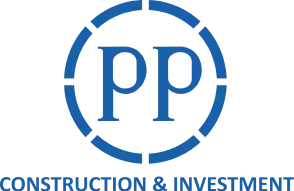ESG Policy
- Implementing efforts to reduce carbon emissions for all business activities.
- Maintain and preserve biodiversity in the company's business area.
- Reducing the production of garbage and waste by implementing the 3R program (Reduce, Reuse and Recycling).
- Implement an energy saving/conservation program and maximize the use of new renewable energy resources.
- Optimizing technological innovation and resources that have high sustainability value and life cycle.
- Maintain the health and safety of the company's human resources by setting Lost Time Incident (LTI) and Fatality Rate parameters.
- Ensuring workers' rights are fulfilled through the Employee Work Life Balance and Well Being program.
- Increase the involvement and role of women in the company organization.
- Increase social and economic contributions to the surrounding community, micro and small businesses through the implementation of TJSL programs.
- Support national economic growth through periodic increases in the portion of the Domestic Component Level (TKDN).
- Ensuring that all business activities carried out by PT PP have gone through proper Risk Management Governance.
- Reject all forms of fraudulent and corrupt practices within the company.
- Measuring and reporting on social and environmental impacts in a comprehensive and continuous manner across all lines of business.
- Carrying out the audit function independently and objectively with the aim of providing added value and improving the company's operational activities.
Risk Management Policy
- . The Company implements Corporate Risk Management integrated and embedded in the company's management system and strategic and operational planning processes. management system and the company's strategic and operational planning processes as an embodime
- Integration Risk Management is carried out separately in the context of implementing the Three Lines Models of Governance with the following details:
- a. The Board of Directors, as the highest accountability holder in risk management, provides strategic direction and sets risk parameters, namely Risk Capacity, Risk Appetite, Risk Tolerance and Risk Limit.
- b. Unit Internal Audit sebagai lini ketiga, memastikan tata kelola, manajemen risiko, dan pengendalian internal diterapkan secara efektif dengan melakukan audit berbasis risiko yang berpedoman pada peraturan yang berlaku untuk memastikan dan melakukan eva
- c. Unit Manajemen Risiko sebagai lini kedua, melakukan pengembangan kebijakan manajemen risiko dan memberikan masukan kepada Direksi atas Pengelolaan Risiko, Pemantauan Profil Risiko, Pengukuran Risiko dan Meninjau efektifitas rencana Penanganan Risiko.
- d. Unit Terkait sebagai lini pertama, sebagai Pemilik dan Pengelola Risiko bertanggungjawab dan akuntabel untuk mengelola risiko secara konsisten dan berkelanjutan.
- Certainly! Here's the translation into British English: **The Four Pillars in the Implementation of Risk Management applied by the company are:** (a) Active Management by the Board of Directors and Active Supervision by the Board of Commissioners; (b) Adequacy of Risk Management Policies and Standard Operating Procedures, and the Establishment of Risk Strategies; (c) Adequacy of Risk Identification, Measurement, Control, Reporting and Monitoring, as well as the Risk Management Information System; (d) A Comprehensive Internal Control System.
Quality Policy
- Promote concern for customer desires and satisfaction by improving quality continuously.
- Ensure each stage of the quality process is on track and continually evaluated.
- Prioritising engineering and business approaches such as the use of Building Information Modelling (BIM), innovation and competitive cutting-edge technology.
- Encourage the professionalism of human resources that are adaptive and have a global outlook.
Health, Safety, Environmental Policy
- The implementation of the HSE management system adheres to applicable regulations and requirements through continuous improvements in occupational health, safety, and environmental management, by involving relevant stakeholders and actively encouraging the engagement, participation, and consultation of all employees and vendors.
- Prevention of occupational injuries and illnesses.
- Efficient use of resources in every activity and play an active role in preserving the environment and nature. environment and nature.
Work Environment Policy
- Care for a healthy working environment and consider environmental impacts in every work activity.
- Implementation of Employee Well-being Policy (EWP) that supports the establishment of healthier industrial relations and a harmonious and collaborative work environment with physical, mental, social, and financial health management programmes.
- The Respectful Workplace Policy (RWP) aims to create a work environment free from discrimination, violence, and harassment, in order to foster an inclusive atmosphere that values diversity and equality, upholds human rights, and supports the company's performance, growth, and sustainability.
- Encouraging increased awareness in good faith or on the basis of reasonable belief, without fear, among fellow PP personnel and relevant external parties, in order to foster a conducive working environment.
Project Management Policy
- Fulfilling the company's needs by fostering collaboration between units, thereby creating an integrated and aligned project management system to achieve the company's objectives.
- Establishing the needs and benefits of project management, both for the present and the future, for the company—through planning and control of cost, quality, time, and scope of work—in order to identify potential opportunities for the company and its stakeholders.
- The implementation of innovation and appropriate technology that provides benefits to the company is Building Information Modelling (BIM).
Investment Management Policy
- The company prioritises investments that deliver maximum benefit for the public interest and the company itself, while maintaining financial stability, adhering to good governance principles, applying risk management, and avoiding any conflicts of interes
- The management of the investment portfolio and strategic business units is planned through feasibility studies in accordance with applicable legal provisions, with a focus on independent and sustainable financial growth.
Information Security Policy
- Protecting information assets from various forms of threats to ensure that important information owned by and/or managed by the company is not disclosed to unauthorised parties (confidentiality).
- Ensuring the truthfulness, accuracy, and completeness of information (integrity).
- Ensuring the availability of information so that critical information for the continuity of business processes is always accessible whenever needed (availability).
Anti-Bribery Management Policy
- Upholding the company’s values and code of ethics by all personnel in carrying out company activities and operations.
- Complying with all applicable anti-bribery laws and regulations.
- Fulfilling and implementing the requirements of the Anti-Bribery Management System effectively, consistently, and efficiently, with continuous improvement efforts.
- Encouraging and training all company personnel to be aware of and actively involved in the implementation of the anti-bribery management system in good faith and without fear.
- Maintaining zero tolerance for bribery in all company activities.
- Ensuring disciplined compliance by all company personnel with the values, code of ethics, rules, regulations, policies, and anti-bribery procedures.
- Building relationships and synergy based on integrity and anti-bribery principles in all interactions between the company and its stakeholders.
- Establishing an independent Anti-Bribery Compliance Function (FKAP) with the authority to ensure the company’s anti-bribery requirements are met.
- Imposing strict sanctions on any form of violation, non-compliance, or deviation from this anti-bribery policy in accordance with applicable regulations.
Jakarta, April 23rd 2025

Novel Arsyad
President Director
SK No. 003/SK/PP/DIR/2025
